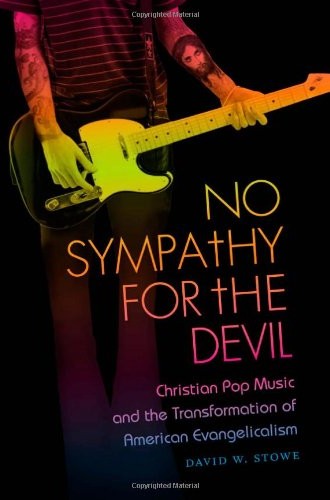Jesus music

No Sympathy for the Devil
David Stowe has a new book about Christian pop music, and he recently placed a teaser article as a New York Times op-ed.
Stowe's basic argument makes sense, though it's unsurprising: Jesus came up more often in mainstream pop music before 1980 or so, after which the growing Christian Contemporary Music industry--and its association with social conservatism--created a "religious/secular rift in pop music." Mainstream artists avoided Jesus because of his new cultural baggage, and conservative evangelicals avoided mainstream music because they didn't need it anymore.
That sounds about right as far as it goes. But as Tom Beaudoin points out, classifying music as religious or secular based on explicit references to Jesus is an awfully primitive framework:





